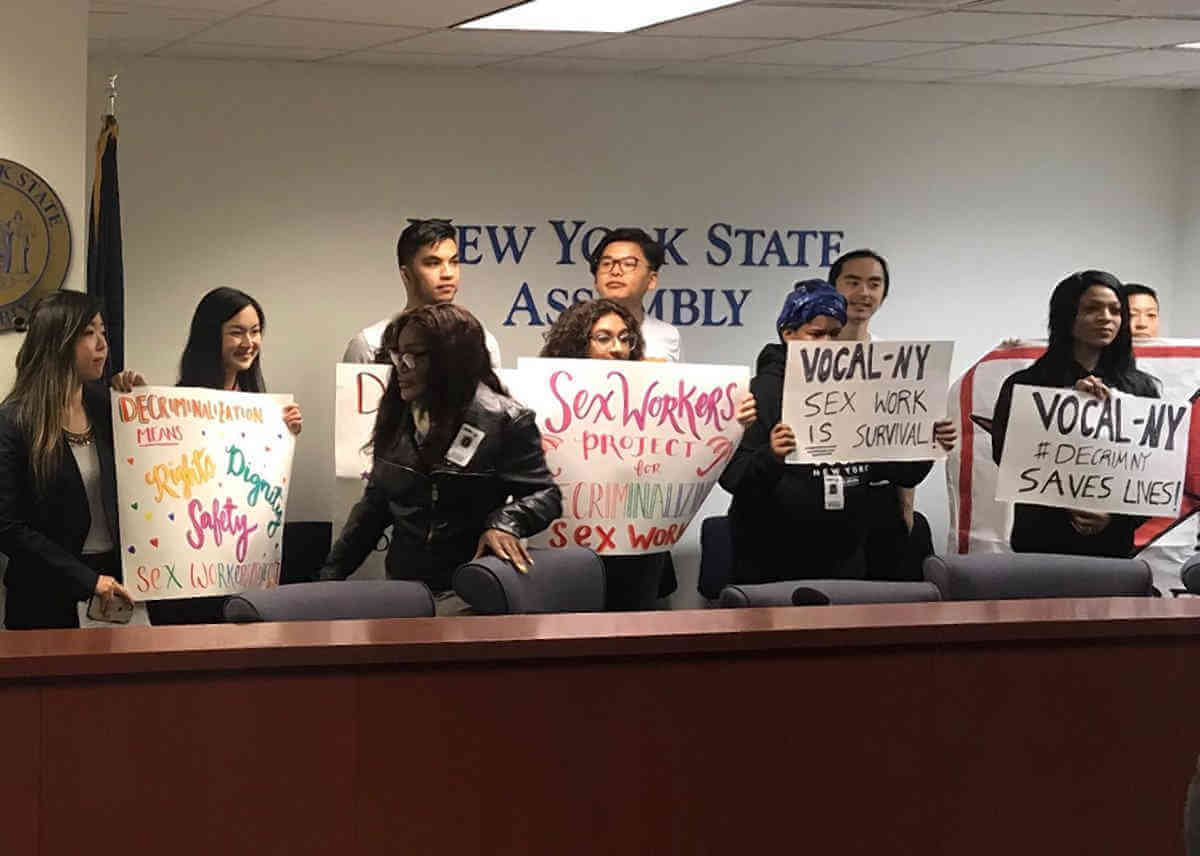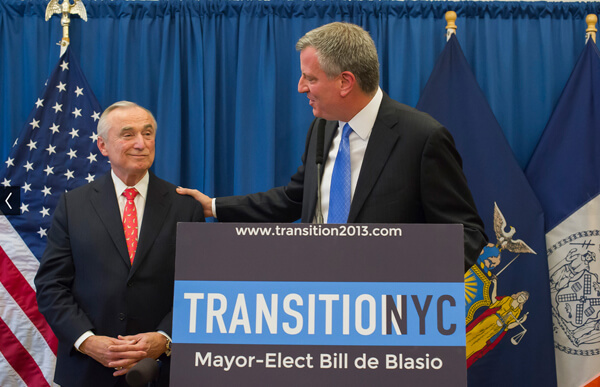Advocates were unable to prod New York State lawmakers to move on three criminal justice measures that disproportionately affect LGBTQ people — especially trans women of color — before the end of the legislative session on June 21.
Lawmakers bolted Albany on June 21 having failed to take action on a campaign to repeal the loitering for the purposes of prostitution law, provide record relief for sex trafficking survivors, and curb the use of solitary confinement in the State of New York despite a months-long effort by the DecrimNY coalition, advocates, and several legislators. In a compromise of sorts, Governor Andrew Cuomo, Senate Majority Leader Andrea Stewart-Cousins, and Assembly Speaker Carl Heastie, all three Democrats, announced an agreement — to be “implemented administratively” — to reduce solitary confinement.
Yet, as some Democrats hailed the 2019 legislative session as a sweeping success, those involved with the DecrimNY coalition were quick to remind folks that many urgent priorities facing the most marginalized groups remain unresolved.
“A lot of legislators talked about how progressive the session was,” Nina Luo, a spokesperson for DecrimNY, told Gay City News on June 25. “But when we know that people will get deported and killed, it’s kind of a joke.”
The movement to repeal the loitering law, also known as “walking while trans,” came amid a wider effort to decriminalize sex work and was led by many folks who bolstered the cause by voicing their firsthand accounts of their experience working in the sex trade. The advocates received a boost in momentum when the NYPD was pressured into changing its patrol guide after a Legal Aid Society lawsuit charged that the department’s police officers had used the loitering law to stop women for discriminatory reasons such as their clothing, gender identity, or whether or not they had an Adam’s apple. As a result, the NYPD no longer explicitly gives officers the ability to stop people on the basis of “gender, gender identity, clothing, and location” in their enforcement of the controversial loitering law, but that’s widely viewed as only a first step toward a more necessary statewide effort to address the issue.
The record relief effort sought to build upon the measure passed a decade ago when New York became the first state to give trafficking survivors the ability to vacate some charges. But that law proved to be far too narrow by only addressing the vacating of prostitution-related charges while failing to consider non-prostitution-related arrests that occur while someone is being trafficked. The latest legislative effort more broadly covered convictions levied on those who are trafficked, made sure court documents in those cases remain confidential, and removed rules stipulating that they must show rehabilitation to obtain relief.
Advocates pressed the issues until the end, with hundreds of DecrimNY advocates holding a rally in Albany on the final scheduled day of the session alongside out gay State Senator Brad Hoylman of Manhattan, Senators Jessica Ramos and Julia Salazar of Queens and Brooklyn, respectively, and Assemblymembers Richard Gottfried and Dan Quart of Manhattan and Amy Paulin of Westchester. Those lawmakers took leadership roles in the State Legislature on DecrimNY issues, even as they struggled to convince their colleagues to join them.
The solitary confinement agreement announced by legislative leaders also came after DecrimNY mounted pressure on lawmakers to revamp those policies, which directly impact the LGBTQ community. Queens DA candidate Tiffany Cabán, who has experience as a public defender, told Gay City News in April that the Manhattan Detention Center places trans women in solitary once they run out of room in the special housing unit for trans women. Layleen Polanco, a trans woman who died in Department of Correction custody this month, was in “restrictive housing,” which is similar to solitary though detainees in that category are held in isolation for 16 hours per day instead of 23.
The announced changes include banning adolescents, pregnant women, disabled people, and other “vulnerable” folks from solitary. Only those who “commit serious misconduct” would be eligible to be placed in solitary confinement. The agreement also stipulated that people can only be placed in solitary for a maximum of 30 days and that staff working in special housing units will receive increased training on de-escalation techniques and implicit bias. Incarcerated people will be entitled to win early release back into the general population.
Although none of DecrimNY’s proposals cleared both houses, the coalition still managed to recruit allies in the Legislature and gain widespread attention to their causes after having just formed earlier this year.
Heading into the next session, Luo said, advocates will continue their fight. DecrimNY most recently unveiled the Stop Violence in the Sex Trades Act, a bill that would decriminalize sex work for those who trade sex consensually and erase laws that criminalize those who assist sex workers. The work on that bill is in its infancy. Gottfried and Manhattan Assemblymember Yuh-Line Niou are leading that bill in the lower house, while Salazar and Ramos are carrying it in the Senate. Quart is a co-sponsor in the Assembly, along with Assemblymembers Ron Kim and Catalina Cruz of Queens.
“We have to keep fighting and see where we are next session,” Luo said of DecrimNY’s next move.
There was nonetheless plenty of movement on other LGBTQ measures during the session. Lawmakers passed a gender identity nondiscrimination measure known as GENDA, banned conversion therapy and the gay and trans panic defense, and restored state benefits for service members who were discharged from the military under Don’t Ask, Don’t Tell. They also voted to provide survivors of sexual assault with access to post-exposure prophylaxis (PEP) to prevent HIV infection.
A controversial measure championed by Hoylman and Paulin to legalize gestational surrogacy cleared the State Senate but ran into a roadblock in the lower chamber, where out lesbian Manhattan Assemblymember Deborah Glick and female colleagues of hers expressed hesitation on the issue over concerns about the rights of women who would carry the babies. Legislative leaders vowed to continue crafting that bill and could revisit it in the next session.


































